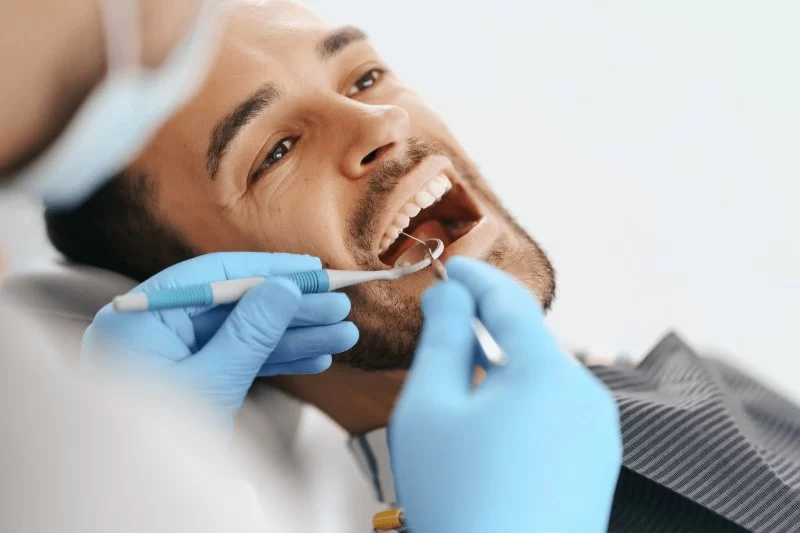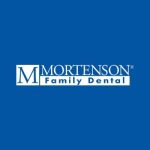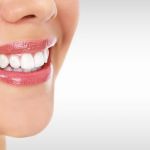
1. Can the Mouth Really Affect the Lungs?
1.1 Understanding the Link Between Oral Bacteria and Respiratory Infections
At first glance, the mouth and lungs may seem like distant neighbors. But in medical science, their relationship is closer—and more dangerous—than most people realize. When oral hygiene is neglected, harmful bacteria multiply in the mouth. These pathogens don't just stay there; they can travel. Particularly in older adults or those with compromised immunity, these bacteria can be aspirated into the lungs, triggering serious respiratory infections, including pneumonia.
1.2 The American Perspective: A Growing Public Health Concern
In the United States, pneumonia is among the top ten causes of death, especially in the elderly. Meanwhile, the CDC and ADA emphasize that good oral hygiene isn't only about saving teeth—it's about protecting life. With over 47% of American adults showing signs of periodontal disease, the potential impact on lung health becomes even more alarming.
2. Scientific Evidence: What the Research Shows
2.1 Studies That Reveal the Oral-Lung Connection
Multiple peer-reviewed studies have explored the relationship between dental health and pneumonia. A landmark study published in the *Journal of the American Geriatrics Society* found that nursing home residents who received professional oral care were significantly less likely to develop pneumonia than those who didn’t.
In another study by Harvard Medical School, researchers discovered that bacteria like *Streptococcus pneumoniae* and *Porphyromonas gingivalis*, commonly found in dental plaque, are often isolated in patients suffering from bacterial pneumonia. These findings confirm that bacteria from gum disease and dental decay may be direct contributors to lower respiratory tract infections.
2.2 The Role of Aspiration in Spreading Bacteria
Aspiration is when foreign materials—like saliva, food particles, or oral bacteria—enter the lungs by mistake. This usually occurs during sleep or in people with swallowing difficulties. When harmful microbes from poor dental hygiene are aspirated, they can settle in the lungs and cause infection, particularly in people who are elderly, on ventilators, or have weakened immune systems.
3. Real-Life Cases: When Bad Dental Habits Turn Dangerous
3.1 Case Study: From Bad Breath to Hospital Bed
David, a 72-year-old man from Florida, lived alone and had not seen a dentist in over a decade. He suffered from bleeding gums and chronic bad breath, which he dismissed as a minor nuisance. One winter, David developed a cough and fever. Within days, he was hospitalized with bacterial pneumonia. The culprit? A lung infection caused by bacteria originating from advanced periodontal disease. His doctors emphasized that regular dental checkups could have prevented his hospitalization.
3.2 The COVID-19 Era: Amplifying the Risk
During the pandemic, many Americans skipped routine dental visits. Unfortunately, this delay in oral care led to worsening gum disease in some, which experts believe increased pneumonia risks, especially in those also battling COVID-19. These overlapping health challenges highlighted the crucial link between oral and systemic health more than ever before.
4. Prevention: How to Protect Your Mouth and Lungs
4.1 Daily Habits That Can Save Lives
Fortunately, reducing pneumonia risk from poor oral hygiene is entirely achievable with consistent practices. Brushing twice daily with fluoride toothpaste, flossing regularly, and using antibacterial mouthwash can significantly reduce the bacterial load in the mouth. For those with dentures, daily cleaning is equally important to prevent biofilm buildup.
4.2 Professional Dental Care and Its Protective Role
Routine dental visits—ideally every six months—allow dentists to detect early signs of gum disease and remove tartar that harbors harmful bacteria. For high-risk groups such as seniors or people with chronic illnesses, more frequent dental cleanings may be recommended. In fact, facilities like nursing homes are being urged to implement structured oral care programs to lower pneumonia cases among residents.
4.3 Dietary and Lifestyle Changes
Limiting sugar intake, quitting smoking, and staying hydrated also play essential roles in maintaining oral health. These habits help support a balanced oral microbiome, preventing pathogenic bacteria from thriving.
5. When to Seek Help: Warning Signs You Shouldn’t Ignore
5.1 Symptoms of Poor Oral Health That May Lead to Infection
Bleeding gums, persistent bad breath, loose teeth, and painful chewing are all red flags of periodontal disease. If you or a loved one experience these symptoms—especially if respiratory issues are also present—it’s crucial to seek both dental and medical attention.
5.2 The Role of Regular Screening and Oral Health Awareness
Early detection saves lives. Just as people routinely screen for blood pressure or cholesterol, oral health checkups should be a cornerstone of overall preventive healthcare. Many dental practices across the U.S., including providers recommended by Dentistry Toothtruth, now offer full periodontal screenings and patient education on the mouth-lung health connection.
6. Final Thought: Your Mouth Is More Than a Smile
It’s easy to underestimate the power of a toothbrush in preventing something as serious as pneumonia. But the science is clear: poor oral hygiene isn't just a cosmetic issue—it’s a potential gateway to severe respiratory illness. By taking care of your mouth, you're also protecting your lungs and, ultimately, your life. If you're unsure where to start, consider consulting with dental professionals listed at Dentistry Toothtruth to ensure your oral care is aligned with your overall health goals.







 Mortenson Family Dental4.0 (413 review)
Mortenson Family Dental4.0 (413 review) Nu Smile Aligner5.0 (1 review)
Nu Smile Aligner5.0 (1 review) GK Dental4.0 (175 review)
GK Dental4.0 (175 review) Carol A. Bahnemann, DDS5.0 (2 review)
Carol A. Bahnemann, DDS5.0 (2 review) Foothill Family Dentistry4.0 (41 review)
Foothill Family Dentistry4.0 (41 review) Corbin Dental at Oyster Bay4.0 (189 review)
Corbin Dental at Oyster Bay4.0 (189 review) The Importance of Oral Health Education During Pregnancy for a Healthy Pregnancy
The Importance of Oral Health Education During Pregnancy for a Healthy Pregnancy Best Tips for Brushing Your Teeth Properly for Healthy Gums: Essential Techniques for Oral Health
Best Tips for Brushing Your Teeth Properly for Healthy Gums: Essential Techniques for Oral Health Why Skipping Dental Checkups Can Lead to Bigger Oral Health Problems
Why Skipping Dental Checkups Can Lead to Bigger Oral Health Problems Advantages of Porcelain Dental Restorations
Advantages of Porcelain Dental Restorations How Can Diabetes Cause Tooth and Gum Problems? Preventing and Managing Oral Health Issues
How Can Diabetes Cause Tooth and Gum Problems? Preventing and Managing Oral Health Issues Healthy Habits for Promoting Good Oral Health and Hygiene: Tips for a Healthy Smile
Healthy Habits for Promoting Good Oral Health and Hygiene: Tips for a Healthy Smile